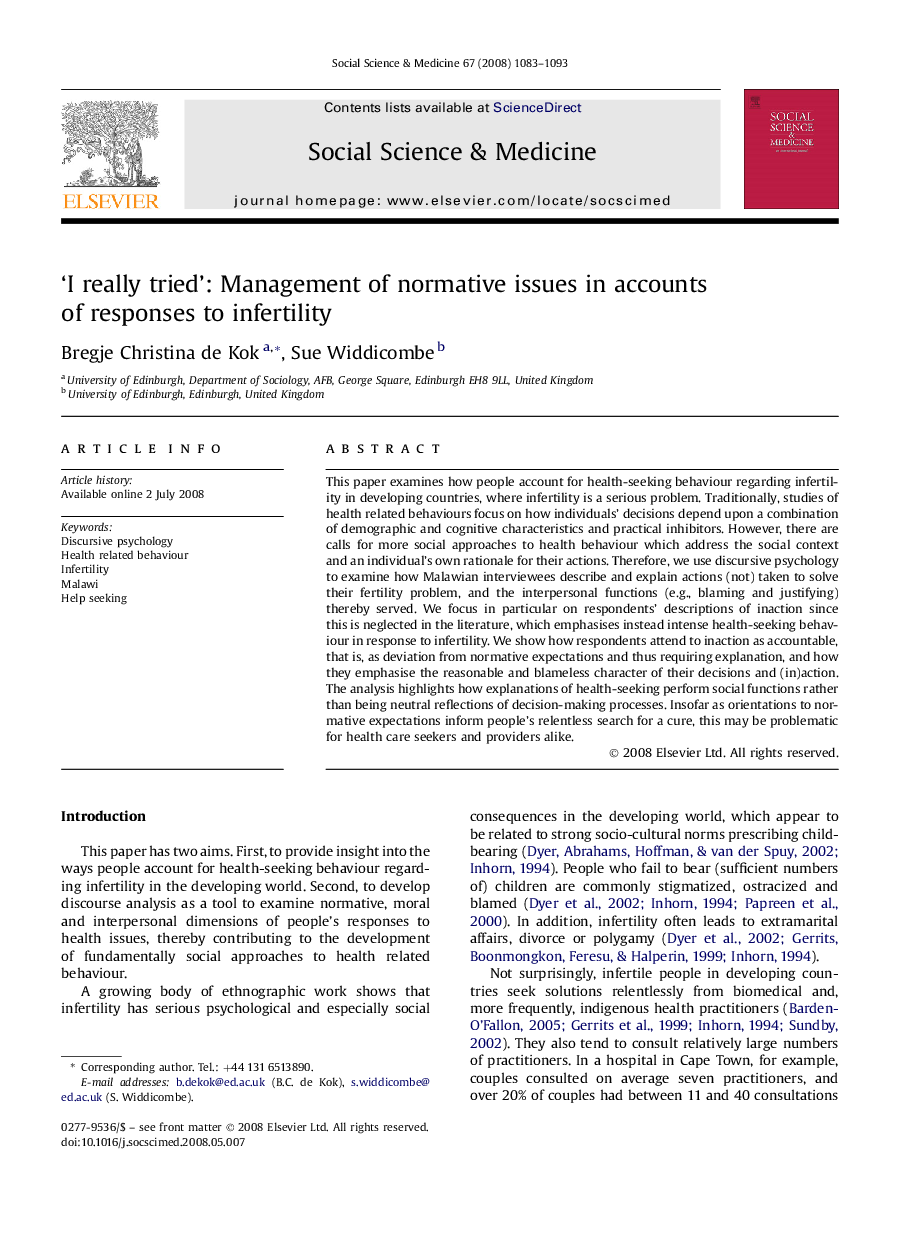| Article ID | Journal | Published Year | Pages | File Type |
|---|---|---|---|---|
| 954151 | Social Science & Medicine | 2008 | 11 Pages |
This paper examines how people account for health-seeking behaviour regarding infertility in developing countries, where infertility is a serious problem. Traditionally, studies of health related behaviours focus on how individuals' decisions depend upon a combination of demographic and cognitive characteristics and practical inhibitors. However, there are calls for more social approaches to health behaviour which address the social context and an individual's own rationale for their actions. Therefore, we use discursive psychology to examine how Malawian interviewees describe and explain actions (not) taken to solve their fertility problem, and the interpersonal functions (e.g., blaming and justifying) thereby served. We focus in particular on respondents' descriptions of inaction since this is neglected in the literature, which emphasises instead intense health-seeking behaviour in response to infertility. We show how respondents attend to inaction as accountable, that is, as deviation from normative expectations and thus requiring explanation, and how they emphasise the reasonable and blameless character of their decisions and (in)action. The analysis highlights how explanations of health-seeking perform social functions rather than being neutral reflections of decision-making processes. Insofar as orientations to normative expectations inform people's relentless search for a cure, this may be problematic for health care seekers and providers alike.
